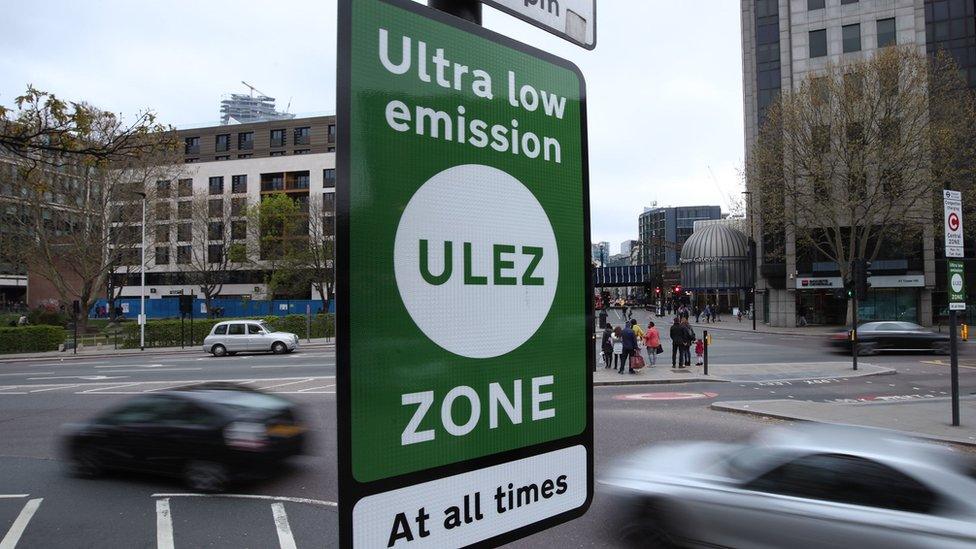More Tube strikes likely after TfL funding deal, warns union
- Published
- comments
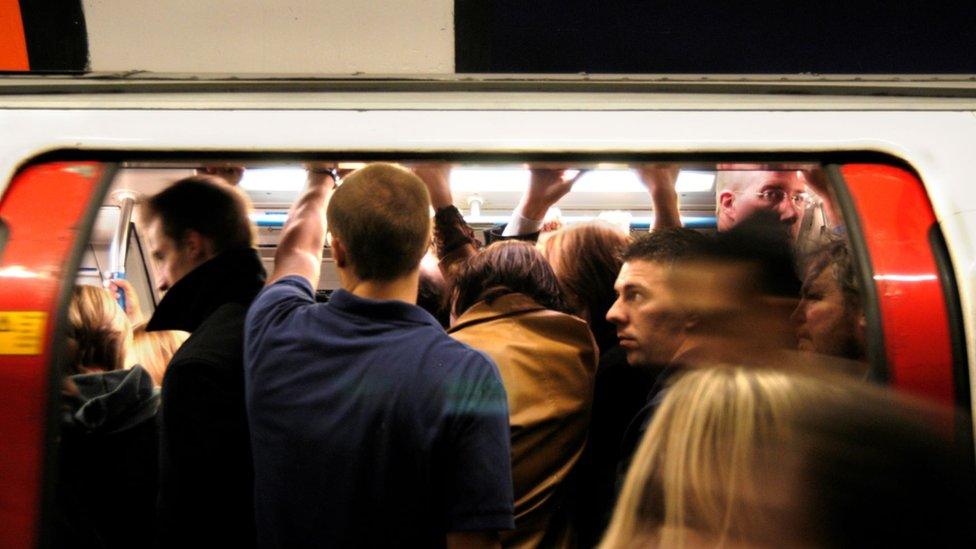
Commuters have been warned of a potential rise in Tube fares of 14% next year
A new £3.6bn government bailout for Transport for London (TfL) will lead to fresh strikes on the network, a rail trade union has warned.
The Department for Transport (DfT) reached the deal with TfL on Tuesday to keep public transport running.
The Rail, Maritime and Transport union (RMT) says the settlement, which has conditions, will lead to an "attack" on Tube workers' pay and pensions.
TfL has urged the RMT to work with it "constructively" following the deal.
The new funding package, which lasts until 31 March 2024, is the sixth bailout for TfL, whose revenues plummeted during the Covid-19 pandemic.
It includes almost £1.2bn of upfront funding that will allow new Piccadilly line trains to be built, as well as upgrades to three Tube lines.
However, Mayor of London Sadiq Khan, who is also chair of TfL, has warned of cuts to bus services and potential fare rises of up to 14% next year.
He said on Tuesday the latest bailout has terms he "had no choice but to accept in order to get the deal over the line to avoid TfL becoming bankrupt", to save jobs and keep services running.
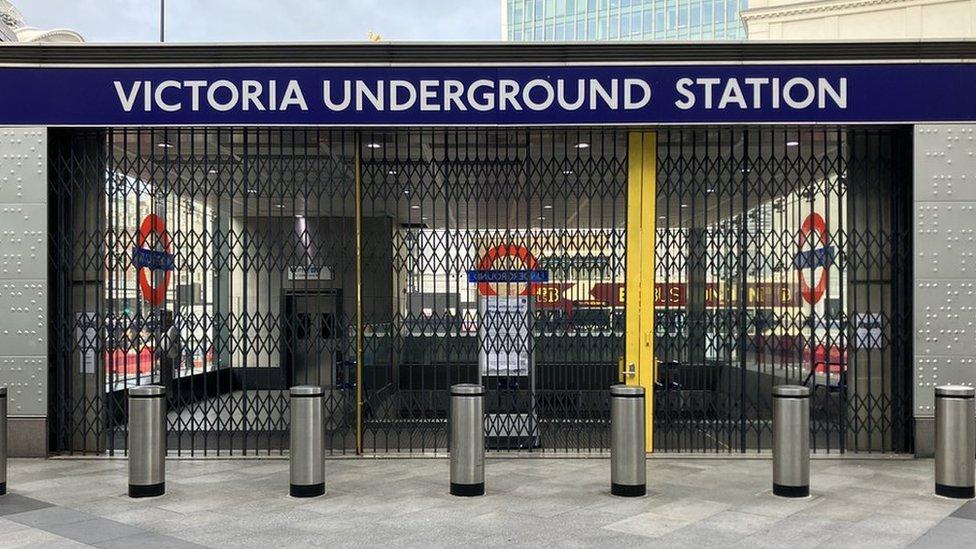
A series of Tube strikes called by the RMT union this year have brought the network to a halt at times
In letter to Mr Khan,, external Transport Secretary Grant Shapps also called for a commitment to "press forward" with the introduction of driverless trains on the London Underground.
His department said Mr Khan had also committed to submit proposals to reform pensions by the end of September.

Analysis
By Tom Edwards, BBC London's Transport Correspondent
It's no surprise the unions say strikes are likely.
It feels as though TfL has had to hold its nose and take the money - it wanted more money guaranteed over a longer time-frame, with fewer strings attached - but there is a lot to be said for some certainty and ability to control its own destiny.
However, there are huge flash points throughout the agreement that will enrage transport unions.
There is still a funding gap of about £230m and that will means cuts.
Pensions will be reviewed - changes to them are a red line to unions. Proposals have to be consulted on by May 2023.
Pay will have to be in line with UK-wide public sector pay. That means restraint.
And again the government wants more work on driverless trains.
If you thought this was the end of the funding story at TfL, sorry - it's really just the start.
Yes, this was a pragmatic deal for TfL, but there will be repercussions.

RMT general secretary Mick Lynch accused the government and TfL of negotiating the deal "in secret" and said the arrangement would "likely see our members' pensions attacked and further pay restraint in the future, coupled with driverless trains."
"Grant Shapps' attack on Tube workers would be unacceptable at any time but in an escalating, cost-of-living crisis it is shameful and will be resisted through further strike action," he said.
The RMT union has called a series of strikes on the Tube this year in a dispute over pay and conditions, with members also taking part in national rail strikes.
Along with other transport unions, it is to hold a "Save London Transport" rally later in central London, which US senator Bernie Sanders is expected to attend as a special guest.
"The rally tonight will send a message that RMT and other transport unions will not tolerate attacks on workers' pay and conditions or cuts to public services," Mr Lynch added.
TfL said to secure the funding, it had "no alternative" but to accept some conditions.
A spokesperson for the transport body said: "We urge the RMT to work with us constructively to continue to rebuild public transport ridership and move away from the managed decline of public transport that would benefit no-one at all."
Mr Shapps said the deal had to be "fair to taxpayers across the entire country".
When the deal was announced on Tuesday, he said it "more than delivers for Londoners and even matches the mayor's own pre-pandemic spending plans but for this to work, the mayor must follow through on his promises to get TfL back on a steady financial footing, stop relying on government bailouts and take responsibility for his action".

Follow BBC London on Facebook, external, Twitter , externaland Instagram, external. Send your story ideas to hellobbclondon@bbc.co.uk, external
- Published30 August 2022
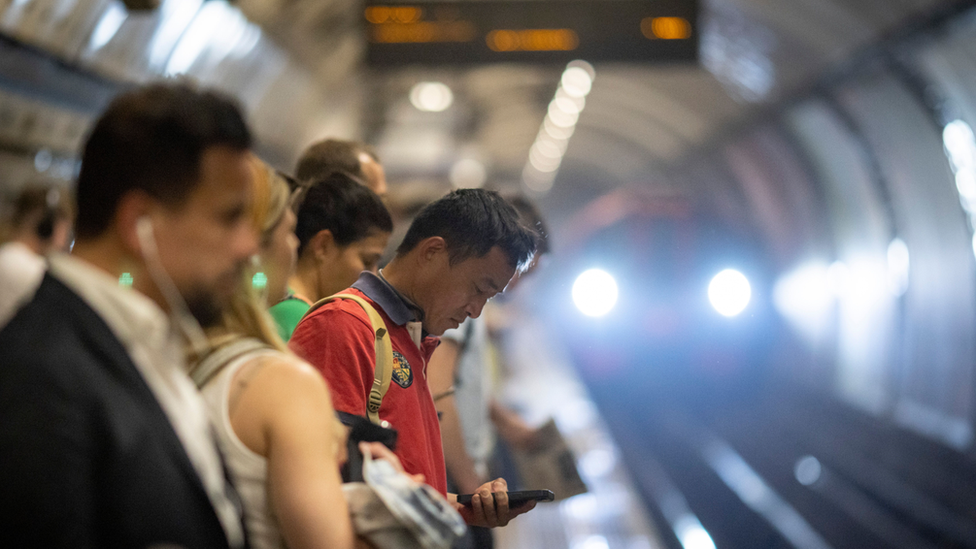
- Published26 July 2022
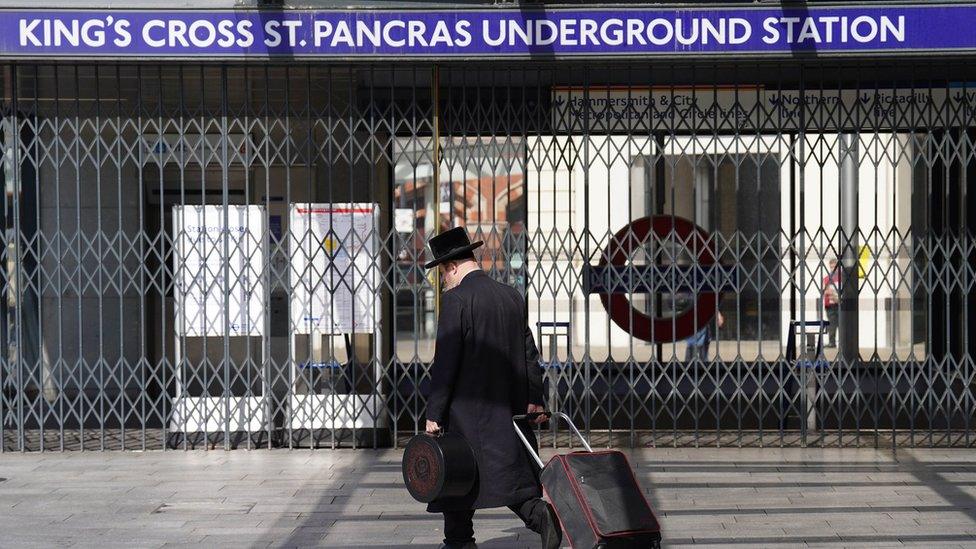
- Published13 July 2022
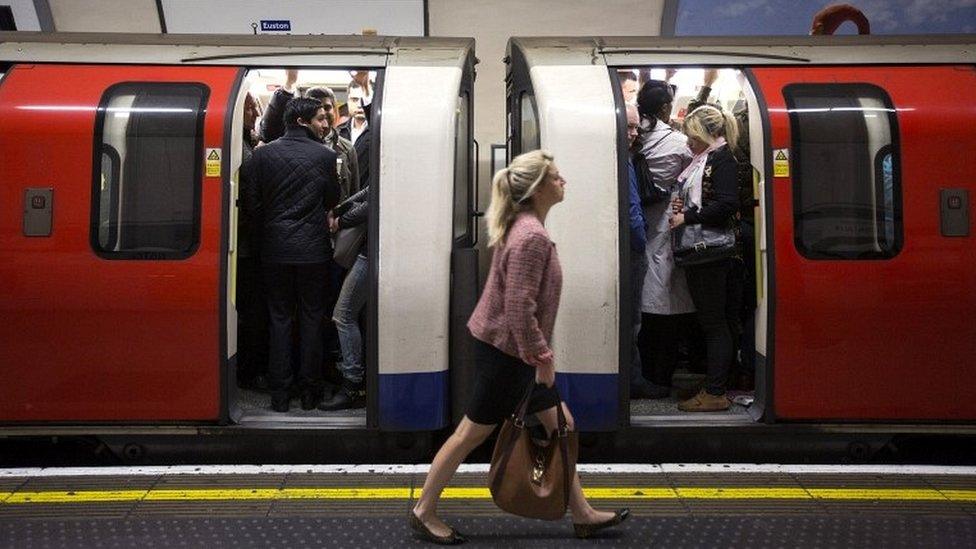
- Published4 April 2022
